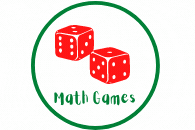How Far Is Kilometers
Introduction to Kilometers
Kilometers, often abbreviated as "km," are a unit of length measurement in the metric system. They are commonly used worldwide for expressing distances, especially in countries that have adopted the metric system. Understanding kilometers and their significance is essential for navigating the modern world.
Understanding Kilometers vs. Miles
Kilometers and miles are two distinct units of measurement for distance. While kilometers are used predominantly in most parts of the world, miles are more commonly used in countries like the United States and the United Kingdom. Understanding the conversion between kilometers and miles is crucial for global communication and travel. Continue Below>>
Reception worksheets | Year 1 | Year 2 | Year 3 | Year 4 | Year 5 | Year 6 | Year 7 | Year 8 | Multiplication worksheets pdf | Counting to ten |
Preschool Worksheets

Preschool Math Worksheets - Counting, Addition, Subtraction, Geometry, & More. Colorful printable math tests.
Go to pageKindergarten Worksheets

Kindergarten Math worksheets- Addition, Subtraction, Probability, ,Fractions & More. Free math worksheets
Go to page1st Grade Worksheets

1st First Grade Math Worksheets - Counting, Addition, Geometry, Positions & More. First grade math worksheets
Go to page2nd Grade Worksheets

2nd Second Grade Math worksheets- Counting, Addition, Subtraction, Geometry, Positions & More. Grade 2 worksheets
Go to page3rd Grade Worksheets

3rd Third Grade Math Worksheets - Counting, Addition, Subtraction, Geometry, Positions & More. Grade 3 worksheets pdf
Go to page4th Grade Worksheets

4th Fourth Grade Math worksheets- Counting, Addition, Subtraction, Geometry, Positions & More. grade 4 math worksheets
Go to page5th Grade Worksheets

5th Fifth Grade Math Worksheets - Counting, Addition, Subtraction, Geometry, Positions & More. grade 5 math worksheets
Go to page6th Grade Worksheets

6th Sixth Grade Math Worksheets - Counting, Addition, Subtraction, Geometry, Positions & More. Grade 6 math worksheets
Go to page7th Grade Worksheets

7th Seventh Grade Math Worksheets - Addition, Subtraction, Geometry, Positions & More. Grade 7 math worksheets
Go to pageThe Origin and Definition of Kilometers
The term "kilometer" originates from the Greek words "kilo," meaning thousand, and "metron," meaning measure. Therefore, a kilometer represents one thousand meters. It's a convenient unit for measuring longer distances, such as the length of roads, geographical distances, or even interstellar distances.
Historical Context: The Evolution of Distance Measurement
The concept of measuring distance dates back to ancient civilizations, where primitive methods like pacing or using body parts were employed. Over time, various standardized units emerged, but it wasn't until the adoption of the metric system that kilometers became widely accepted as a standard unit of measurement.
Practical Uses of Kilometers in Everyday Life
Kilometers play a significant role in everyday activities, from estimating travel distances to calculating the size of parcels for shipping. They are used by runners to track their running routes, by hikers to gauge trail lengths, and by motorists to plan road trips.
Kilometers in Science and Technology
In scientific fields like physics and astronomy, kilometers are indispensable for expressing vast distances, such as the diameter of celestial bodies or the length of electromagnetic waves. In technology, kilometers are used in GPS navigation systems, mapping applications, and telecommunications.
Conversion: Kilometers to Miles
Converting kilometers to miles involves a simple mathematical calculation. One kilometer is approximately equal to 0.621371 miles. This conversion factor is essential for travelers, engineers, and anyone dealing with international measurements.
Benefits of Using Kilometers
The use of kilometers offers several advantages, including compatibility with the metric system, ease of conversion, and precision in measuring distances. Additionally, kilometers provide a more straightforward and standardized approach to distance measurement compared to other units.
Common Misconceptions about Kilometers
Despite its widespread use, there are some common misconceptions about kilometers. One such misconception is that kilometers are exclusively used in Europe, whereas they are the standard unit of measurement in most countries worldwide. Clarifying these misconceptions is essential for promoting accurate understanding.
Challenges in Implementing Kilometers
While kilometers offer many benefits, there are also challenges in their implementation, especially in regions where other units like miles are more prevalent. Resistance to change, cultural preferences, and logistical issues can pose obstacles to adopting kilometers universally.
Future Prospects of Kilometers
As globalization continues and international cooperation grows, the importance of standardized units like kilometers will likely increase. Advances in technology and communication will further streamline the use of kilometers, making them even more ubiquitous in daily life.
Environmental Implications of Kilometers
Switching to kilometers as the primary unit of distance measurement can have positive environmental implications. The metric system's efficiency and consistency can contribute to sustainable practices by promoting resource optimization and reducing carbon footprints.
Conclusion
Kilometers are more than just a unit of measurement; they are a fundamental aspect of our globalized world. Understanding kilometers, their history, practical applications, and future prospects is essential for effective communication, commerce, and scientific progress.
FAQs
-
How do I convert kilometers to miles?
- To convert kilometers to miles, multiply the number of kilometers by 0.621371.
-
Why are kilometers used instead of miles in most countries?
- Kilometers are part of the metric system, which offers standardized units for measurement, promoting global consistency and compatibility.
-
Are kilometers only used for long distances?
- While kilometers are commonly used for longer distances, they are also used for shorter distances, especially in countries that primarily use the metric system.
-
What is the significance of kilometers in scientific research?
- Kilometers provide a standardized unit for expressing distances in various scientific disciplines, enabling accurate measurements and calculations.
-
How can I easily estimate distances in kilometers?
- Familiarizing yourself with common reference points and using mapping tools or GPS devices can help you estimate distances in kilometers accurately.
![]() 8th Eight Grade Math Worksheets - Polynomials, Algebra, Geometry, Pythagorean Theory, & more
8th Eight Grade Math Worksheets - Polynomials, Algebra, Geometry, Pythagorean Theory, & more
![]() Coloring and Arts - Printable coloring worksheets for kids - Pre K to 6 th grade
Coloring and Arts - Printable coloring worksheets for kids - Pre K to 6 th grade
![]() Math Puzzles in PDF Printable Format - Secret trails, Across downs, Number Patterns & more
Math Puzzles in PDF Printable Format - Secret trails, Across downs, Number Patterns & more
![]() Math Board Games in PDF Printable Format - Zombie, Crocodile, Football, Pirate games & more
Math Board Games in PDF Printable Format - Zombie, Crocodile, Football, Pirate games & more
 This exercise will help kids practice Math in a fun way. Kids related to games very well. From preschool / kindergarten to sixth grade levels of math games. There are games for the following topics:
This exercise will help kids practice Math in a fun way. Kids related to games very well. From preschool / kindergarten to sixth grade levels of math games. There are games for the following topics:
The games include among other : memory games, Walk the plank, Fling the Teacher, En Garde Duel, Basketball Game, Penalty Shoot and more.
